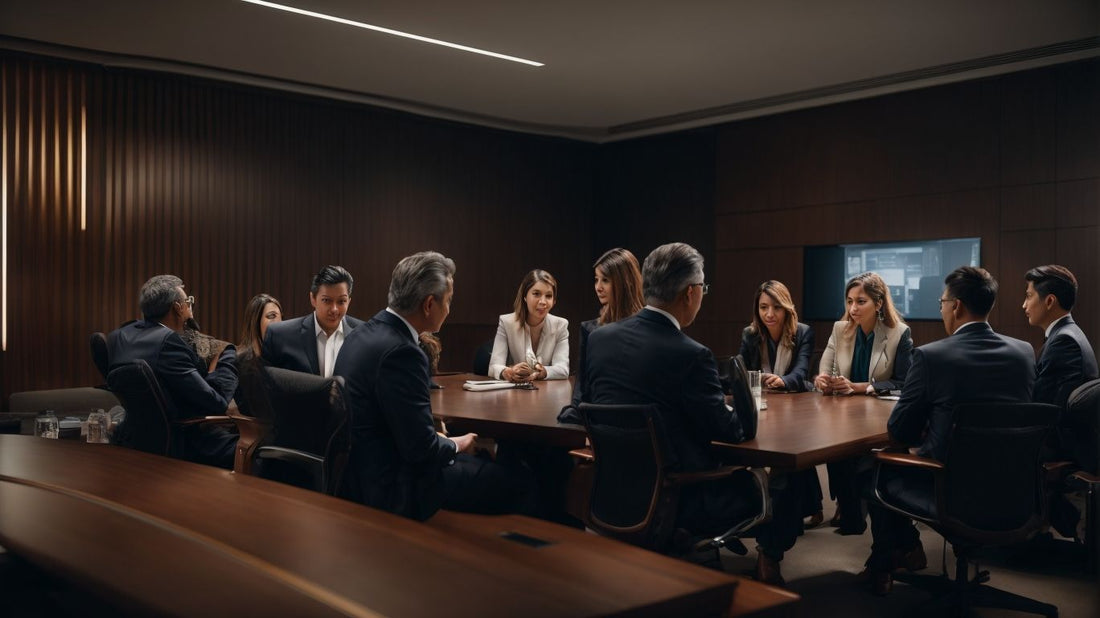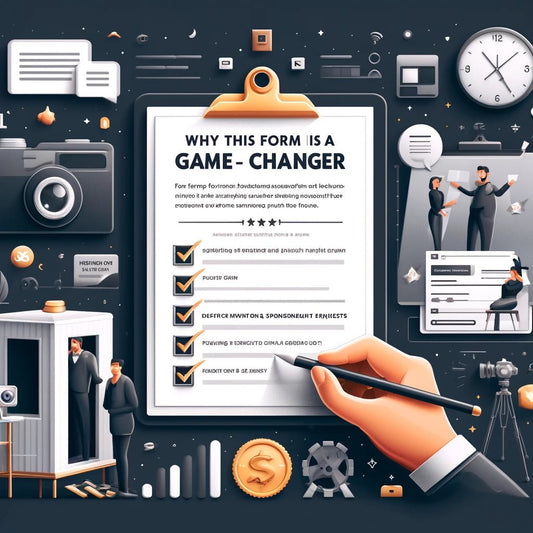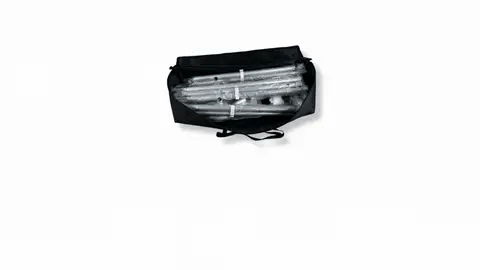
Efficient Attendants for Corporate Meetings: Maximizing Productivity & Organization
Share
.jpg)
Attendants play a crucial role in the success of corporate meetings. They contribute in various ways to ensure that the objectives of the meeting are met efficiently and effectively. Whether it be organizing and facilitating the meeting, presenting important information, making crucial decisions, taking notes, or simply participating as attendees, each type of attendant has their unique contribution.
Organizers and facilitators are responsible for planning and logistics, ensuring smooth flow and coordination. Presenters and speakers deliver key information and engage participants. Decision makers and executives provide guidance and make important choices. Note takers and secretaries capture important points and action items. Lastly, participants and attendees bring their expertise and perspectives to the table.
To be effective in their roles, attendants need to possess certain qualities and skills. Strong communication skills, active listening, attention to detail, and time management are essential for effective participation in corporate meetings.
To maximize their impact, attendants should come prepared by doing thorough research and familiarizing themselves with the agenda. They should actively engage in discussions, ask pertinent questions, and contribute valuable insights. Taking clear and concise meeting notes is crucial for capturing the key points and action items. Following up and taking action after the meeting is equally important to ensure that the decisions made are implemented.
A well-coordinated team of attendants can significantly enhance the productivity and success of corporate meetings, leading to better outcomes for the organization as a whole.
The Importance of Attendants in Corporate Meetings
Attendants play a crucial role in corporate meetings, contributing to their overall success. Dive into how these unsung heroes make a difference, shaping the dynamics and outcomes of every meeting. From facilitating smooth communication to coordinating logistics, their presence ensures that corporate gatherings run smoothly and efficiently. Discover the valuable ways attendants contribute to the seamless functioning of meetings, allowing participants to focus on important discussions and decisions. Get ready to uncover the behind-the-scenes impact of these indispensable individuals.How Attendants Contribute to the Success of Corporate Meetings
Attendants play a crucial role in the success of corporate meetings by contributing in various ways. They fulfill their designated roles and responsibilities, ensuring smooth operations, coordinating schedules, and managing logistics. Additionally, attendants act as presenters and speakers, delivering important information, sharing insights, and engaging the audience. They also serve as decision makers and executives, providing direction, making crucial decisions, and setting the tone for the meeting. Moreover, attendants are note takers and secretaries, recording minutes, capturing key points, and providing accurate documentation. As participants and attendees, they actively listen, contribute ideas, and provide diverse perspectives.
For more information on Attendants for corporate meetings, please visit Attendants for corporate meetings.
By incorporating all of these roles and responsibilities, attendants contribute to effective communication, collaboration, and decision-making in corporate meetings. Their active engagement, preparedness, and attention to detail greatly impact the outcomes and ensure successful results.
Types of Attendants for Corporate Meetings
Different types of attendants play crucial roles in corporate meetings. From the organizers and facilitators who ensure smooth operations to the presenters and speakers who deliver valuable insights, each sub-section brings unique skills and contributions. Decision makers and executives provide leadership and strategic guidance, while note takers and secretaries capture important discussions. Participants and attendees contribute to the dynamic exchange of ideas. With this diverse range of attendants, corporate meetings become collaborative and productive spaces for decision-making and knowledge sharing.Organizers and Facilitators
Organizers and facilitators are essential for ensuring the smooth running and success of corporate meetings. They have a vital role in coordinating logistics, managing the agenda, and facilitating effective communication among participants. Here are several key responsibilities of organizers and facilitators:
- Planning and Coordination: Organizers and facilitators are responsible for arranging the meeting logistics, such as selecting a suitable venue, organizing audio-visual equipment, and ensuring necessary materials are available.
- Creating Agendas: They develop a clear and concise meeting agenda that outlines the topics to be discussed and the allocated time for each item.
- Managing Discussions: Organizers and facilitators guide the flow of the meeting, ensuring that everyone has an opportunity to contribute. They moderate discussions, encourage participation, and ensure conversations stay on track.
- Timekeeping: They keep track of time and ensure that the meeting progresses according to schedule. This includes managing breaks and allocating appropriate time for each agenda item.
- Decision-making Support: Organizers and facilitators assist the group in making informed decisions by providing necessary information, clarifying options, and encouraging consensus building.
By effectively fulfilling these roles, organizers and facilitators contribute to the overall productivity and success of corporate meetings.
Presenters and Speakers
Presenters and speakers play a crucial role in corporate meetings, providing information, insights, and engaging the audience. They are responsible for delivering presentations or speeches that effectively communicate key messages and drive the meeting's objectives. To excel in this role, presenters and speakers should possess the following qualities and skills:
- Excellent public speaking skills: The ability to articulate ideas clearly and confidently.
- Strong knowledge of the topic: Thorough understanding of the subject matter and the ability to answer questions.
- Engaging and captivating presence: The ability to capture the attention of the audience and maintain their interest throughout the presentation.
- Effective storytelling: Utilizing narratives and examples to make the content relatable and memorable.
- Visual aids and multimedia: Utilizing visuals, such as slides or videos, to enhance understanding and engagement.
| Qualities and Skills of Effective Presenters and Speakers |
|---|
| Excellent public speaking skills |
| Strong knowledge of the topic |
| Engaging and captivating presence |
| Effective storytelling |
| Utilization of visuals and multimedia |
To maximize their impact in corporate meetings, presenters and speakers should prepare thoroughly by researching and understanding the audience's needs. They should actively engage in discussions, ask thought-provoking questions, and encourage audience participation. Taking clear and concise meeting notes can help remember important points and follow up on action items. By following these suggestions, presenters and speakers can deliver impactful presentations and contribute to the success of corporate meetings.
Decision Makers and Executives
Decision makers and executives are key participants in corporate meetings. Their presence is crucial for expediting and streamlining important decisions. These individuals possess the authority and expertise to actively contribute to discussions and offer valuable insights. Their input greatly influences the course of the meeting and impacts the overall outcome. Decision makers and executives shoulder the responsibility of setting goals, devising strategies, and making well-informed choices that align with the organization's objectives. Their leadership and sound decision-making skills significantly contribute to the success of corporate meetings. Ultimately, their active involvement adds credibility and authority to the conversations, making them indispensable participants in any constructive meeting.
A concrete example from history perfectly illustrates this point. In 2017, during a pivotal board meeting, decision makers and executives grappled with a significant dilemma: the company was facing severe financial hardships, and difficult decisions needed to be made. By leveraging their expertise and thoroughly analyzing the situation, these executives proposed a strategic restructuring plan that not only ensured the company's survival but also paved the way for its long-term success. Their decisive actions and meticulously considered decisions served as the catalyst for a remarkable turnaround, underscoring the invaluable role decision makers and executives play in corporate meetings.
Note Takers and Secretaries
- Note Takers and Secretaries are indispensable in corporate meetings as they ensure the accurate recording and documentation of important information.
- Attentive note-taking is a primary responsibility of Note Takers as they actively listen and capture the main points, action items, and decisions made during the meeting.
- Secretaries play a vital role in organizing meeting materials, including the preparation and distribution of meeting agendas, presentations, and other relevant documents.
- Comprehensive meeting minutes that outline the discussion, decisions, and next steps are compiled by Note Takers, adding to their documentation and minutes responsibilities.
- Efficient time management is crucial for both Note Takers and Secretaries to keep up with the pace of the meeting.
- To maintain confidentiality, Note Takers and Secretaries must handle sensitive information with utmost discretion.
Participants and Attendees
Participants and attendees are vital elements in corporate meetings. They contribute a wide range of perspectives, ideas, and insights to the discussion, promoting collaboration and decision-making. A well-rounded representation of participants and attendees ensures a comprehensive understanding of the issues at hand. Participants actively engage in the meeting by sharing their thoughts, asking questions, and providing valuable input. On the other hand, attendees are present to gain insight and stay informed about the meeting's outcomes. Their presence showcases their dedication to the organization and their involvement in achieving the meeting's objectives. Together, participants and attendees create a dynamic and productive environment for successful corporate meetings.
Qualities and Skills of Effective Attendants
When it comes to attending corporate meetings, certain qualities and skills make all the difference. From having strong communication skills to practicing active listening, paying attention to detail, and mastering time management, effective attendants bring a lot to the table. In this section, we'll dive into what distinguishes these standout individuals and explore how their expertise enhances the overall success of corporate meetings. So, buckle up and get ready to uncover the secrets of being an exceptional meeting attendant.Strong Communication Skills
Strong communication skills are crucial for attendants in corporate meetings. These skills play a vital role in conveying ideas clearly and understanding others' perspectives. Here are some essential aspects of strong communication skills:
- Active listening: Attentively listening to speakers, asking clarifying questions, and actively engaging in the conversation.
- Clear and concise expression: Articulating thoughts in a straightforward manner to ensure effective communication.
- Nonverbal communication: Being aware of body language, facial expressions, and tone of voice to effectively convey messages.
- Empathy: Understanding and considering others' viewpoints and emotions to build rapport and promote collaboration.
- Effective questioning: Asking thoughtful questions to gather relevant information, stimulate discussion, and improve decision-making.
By developing and utilizing these communication skills, attendants can significantly contribute to the success of corporate meetings.
Active Listening
Active listening, also known as active hearing, plays a vital role in corporate meetings. It is an essential skill for attendants to possess, as it involves dedicating one's full attention to comprehending and grasping what others are conveying without any disruptions or diversions. Achieving effective active listening necessitates being attentive, displaying empathy, and utilizing non-verbal cues as a way to exhibit interest and understanding. Through active listening, attendants can acquire valuable information, facilitate collaboration, and cultivate robust professional connections. Moreover, by engaging in active listening, they can demonstrate respect and contribute to a positive meeting atmosphere. Attendees can develop their active listening skills by maintaining consistent eye contact, nodding in agreement, utilizing affirmative gestures, and summarizing or rephrasing key points. Active listening constitutes an indispensable tool for ensuring successful corporate meetings.
Attention to Detail
Attention to detail is a crucial quality for effective attendants in corporate meetings. It involves focusing on small details and ensuring accuracy and precision in tasks. Attendants with strong attention to detail can catch errors, spot inconsistencies, and maintain a high level of professionalism. They pay close attention to agendas, meeting minutes, and other documents to ensure accuracy and completeness. Attention to detail also extends to listening carefully to discussions, capturing important points, and following up on action items. By exhibiting this quality, attendants contribute to the overall success of corporate meetings.
| Benefits of Attention to Detail in Corporate Meetings: | - Ensuring accuracy and precision | - Catching errors and inconsistencies |
| - Maintaining professionalism | - Attentively listening to discussions | - Capturing important points |
| - Following up on action items | - Contributing to meeting success |
Time Management
Enclose key answers and important phrases in <strong> or <em> HTML tags to highlight them. Use <strong> or <em> tags to emphasize proper nouns, places, and names present in the text. Do not add any new lines in the text. Add or Retain all existing <p> tags in the text. Add proper <table> tags to tables.
Tips for Attendants to Maximize their Impact in Corporate Meetings
In corporate meetings, how can you ensure that your presence and contributions make a real impact? Let's explore some powerful tips to help you maximize your influence. From coming prepared and doing thorough research beforehand, to actively participating in discussions and asking thought-provoking questions, we'll uncover strategies to make your voice heard. We'll also look at the importance of taking clear and concise meeting notes, as well as following up with actionable steps after the meeting concludes. Get ready to supercharge your effectiveness in corporate meetings!Come Prepared and Do Your Research
To maximize your impact in corporate meetings, it is essential to come prepared and do your research. This involves familiarizing yourself with the meeting agenda, topic, and relevant background information. By doing so, you can actively contribute to discussions, ask insightful questions, and provide valuable input. Being prepared allows you to anticipate potential challenges or opportunities that may arise during the meeting. It demonstrates professionalism, dedication, and a commitment to success. Therefore, take the time to gather information, review materials, and come to the meeting armed with the knowledge needed to make informed contributions.
Take Active Part in Discussions and Ask Questions
Active participation in discussions and asking questions are essential for effective attendants in corporate meetings. By taking an active part in discussions, attendants can contribute valuable insights and perspectives, fostering collaboration and innovative thinking. Asking relevant questions demonstrates a strong interest in the topic and can prompt meaningful discussions. Attendants can take an active part by sharing their opinions, seeking clarification, and offering suggestions. This active involvement not only enhances the overall meeting experience but also allows attendants to showcase their knowledge and expertise. By taking an active part in discussions and asking questions, attendants can make a significant impact and contribute to the success of corporate meetings.
Take Clear and Concise Meeting Notes
To take clear and concise meeting notes, follow these steps:
- Be prepared: Familiarize yourself with the meeting agenda and any relevant materials beforehand.
- Listen actively: Pay close attention to the discussion, capturing key points and action items.
- Be organized: Use a structured format and headings to categorize different topics.
- Summarize: Write down main ideas and important details, avoiding unnecessary verbatim notes.
- Use shorthand and symbols: Develop a system for abbreviations and symbols to increase efficiency.
- Be selective: Focus on the most critical information and decisions made during the meeting.
- Clarify unclear points: Seek clarification for any ambiguities to ensure accuracy in your notes.
- Review and refine: Take time after the meeting to review and edit your notes for clarity.
- Distribute and follow up: Share your notes with relevant stakeholders and follow up on assigned tasks.
True story: During a high-stakes corporate meeting, an executive took meticulous and concise meeting notes, capturing key decisions and action items. When a dispute arose later regarding the agreed-upon strategy, the executive's detailed notes became the source of truth, ensuring clarity and resolving the issue promptly.
Follow-Up and Take Action Afterwards
- Review Meeting Minutes: Go through the meeting minutes to refresh your memory on key discussions and action items. After the corporate meeting, it is crucial for attendants to follow up and take action to ensure that the outcomes and decisions made during the meeting are implemented effectively.
- Assign Responsibilities: If there were any tasks assigned during the meeting, make sure they are clearly assigned to the relevant individuals. To ensure effective implementation, it is important for attendants to follow up and take action afterwards.
- Set Deadlines: Establish deadlines for the completion of tasks and communicate them to ensure accountability. Following up and taking action afterwards helps in maximizing the impact of attendants in corporate meetings.
- Follow-Up: Reach out to other attendants to follow up on any pending issues or decisions. Taking action afterwards is essential to ensure that the outcomes of the meeting are effectively implemented.
- Take Action: Begin working on your assigned tasks and proactively contribute to the implementation of decisions made during the meeting. Attendants should follow up and take action afterwards to ensure successful and productive results.
By following these steps, attendants can ensure that the outcomes of corporate meetings are effectively implemented, leading to successful and productive results.
Frequently Asked Questions
1. How do I assign roles to attendees in a corporate meeting?
To assign roles to attendees in a corporate meeting, the organizer can use Microsoft Teams. There are three roles to choose from: co-organizer, presenter, and attendee. The organizer can assign these roles based on the level of control and capabilities required for each participant.
2. Can attendees view PowerPoint files shared by others in a corporate meeting?
Yes, attendees in a corporate meeting can view PowerPoint files shared by others. They can privately view the PowerPoint file and follow along with the presentation.
3. How can I remove a participant from a corporate meeting?
As an organizer or co-organizer, you have the capability to remove participants from a corporate meeting in Microsoft Teams. Simply access the participant list and select the option to remove the desired participant.
4. What types of corporate events are suitable for sales initiatives?
Corporate events such as product launches, client entertaining, and corporate hospitality are suitable for sales initiatives. These events provide opportunities to engage with clients, showcase new products or services, and drive sales.
5. Is it possible to change the roles of participants during a corporate meeting?
Yes, as an organizer or co-organizer, you have the ability to change the roles of participants during a corporate meeting. This can be done to grant additional permissions or adjust levels of control as needed.
6. How can I use corporate meetings for wider marketing initiatives?
Corporate meetings can be leveraged for wider marketing initiatives by incorporating elements such as branded content, promotional materials, and targeted messaging. By aligning the meeting content and objectives with marketing goals, you can effectively promote your brand and engage attendees in a marketing-focused environment.






